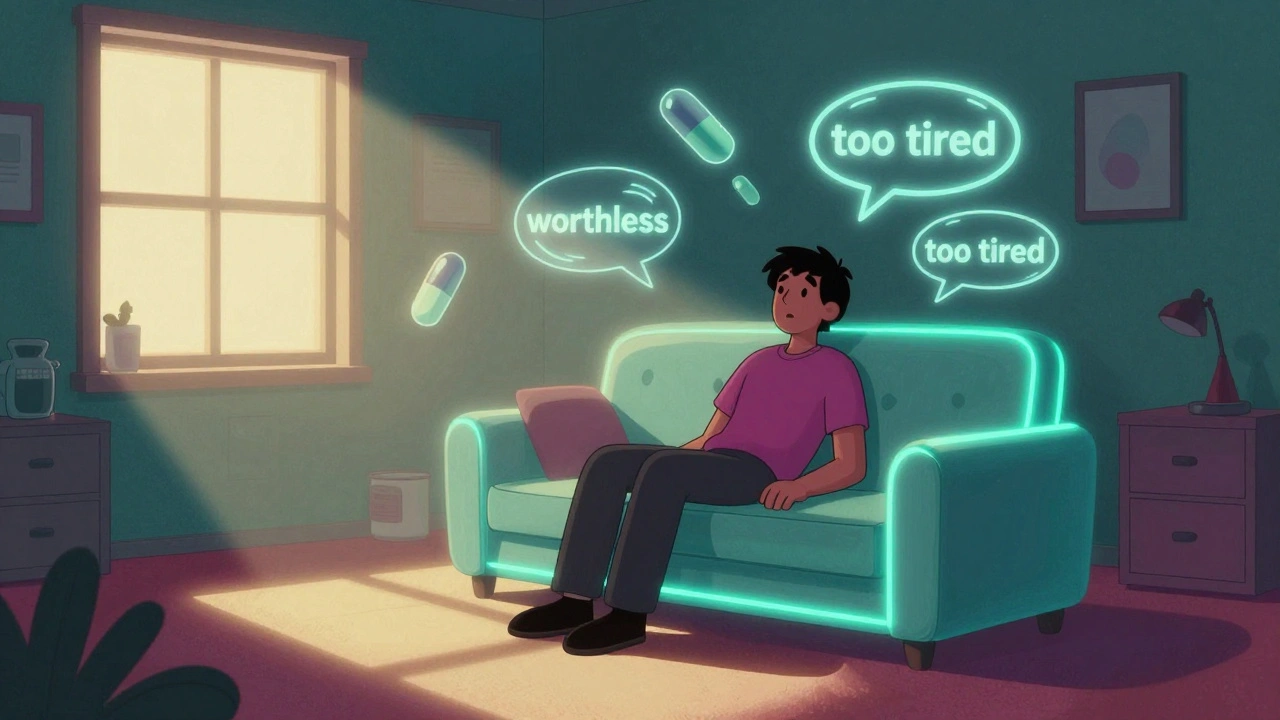Major Depressive Disorder – What It Is and How to Cope
Feeling stuck, empty, or constantly tired? Those are common signs of major depressive disorder (MDD). It’s more than a bad mood – it’s a medical condition that changes how you think, feel, and act. The good news? You can recognize it early and take steps to feel better.
Understanding Major Depressive Disorder
MDD shows up with at least five of these symptoms for two weeks or longer: deep sadness, loss of interest in things you used to enjoy, big changes in appetite or weight, trouble sleeping or sleeping too much, low energy, feeling worthless, trouble concentrating, and thoughts of death or suicide. You don’t need all of them, but if a few stick around, it’s time to get help.
Why does it happen? A mix of genetics, brain chemistry, stress, and life events can trigger it. Think of your brain as a garden – when chemicals like serotonin and dopamine get out of balance, mood can wilt. Stressful jobs, relationship problems, or a family history of depression can tip the scales.
It’s easy to brush it off as “just being sad,” but MDD is a real health issue. Ignoring it often makes it worse, leading to more missed days at work, strained relationships, and higher risk of other illnesses.
Managing Symptoms Effectively
The first step is talking to a professional – a doctor, therapist, or counselor. They can confirm the diagnosis and suggest a treatment plan that fits your life. Most people benefit from a combination of therapy and medication.
Therapy options include cognitive‑behavioral therapy (CBT), which helps you spot negative thoughts and replace them with realistic ones, and interpersonal therapy (IPT), which focuses on relationships and life events that may be fueling the depression.
Medication isn’t a magic fix, but it can rebalance brain chemicals. Common antidepressants are SSRIs like sertraline or fluoxetine, and SNRIs like venlafaxine. They usually take a few weeks to work, and your doctor will monitor side effects and adjust the dose as needed.
Beyond professional help, everyday habits matter a lot. Regular exercise—just 30 minutes of walking a day—releases endorphins that lift mood. Eating a balanced diet with plenty of fruits, vegetables, and omega‑3 fats supports brain health. Sleep hygiene is crucial: aim for 7‑9 hours, keep a consistent bedtime, and avoid screens before bed.
Social support can be a game‑changer. Even if you don’t feel like talking, staying connected with friends or family prevents isolation. If you’re comfortable, join a support group where people share coping tricks and encouragement.
Finally, keep track of your mood. A simple journal or a mood‑tracking app can reveal patterns, such as which activities improve your day or what triggers a slump. Sharing this information with your therapist makes sessions more productive.
Remember, recovery isn’t a straight line. Some days will feel better than others, and that’s okay. By recognizing the signs, seeking professional help, and building supportive habits, you can push back against major depressive disorder and reclaim a more balanced life.
-
 VIEW POST
VIEW POSTMajor Depressive Disorder: Antidepressants and Psychotherapy Options That Work
Dec, 1 2025|15 CommentsMajor Depressive Disorder affects millions, but effective treatments exist. Learn how antidepressants and psychotherapy like CBT work, why combining them is best, and what to expect during treatment. -
 VIEW POST
VIEW POSTVortioxetine (Trintellix) for Major Depressive Disorder: Benefits, Evidence, and Real‑World Tips
Aug, 24 2025|17 CommentsClear, evidence-backed look at how vortioxetine helps major depressive disorder-mood, cognition, sexual side effects, dosing, safety, and real-world tips you can use.